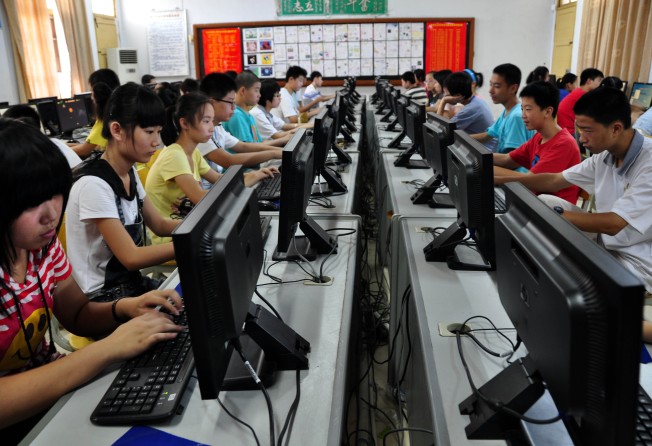Time to licence children's internet use
Peter Kammerer says a recent attempted murder case should prompt us to consider setting stricter limits on children's online access

Parents who take a laissez-faire approach to their children's online and social media activities need to check out a story that broke a few days ago. A 12-year-old girl in a US town near Milwaukee was stabbed 19 times by two classmates trying to impress a fictional website character named Slender Man. She was lured into woods and knifed in the arms, legs and torso, then left for dead. Some of her major organs were pierced, but she was able to crawl to a road for help; miraculously, she survived.
The alleged attackers, also 12, have been charged as adults with attempted homicide and face 60-year jail terms. They told police they had been planning the assault for months and that the website Creepypasta, a collection of short stories about death and horror, was their inspiration. One girl believed Slender Man was real and wanted to live with him. The way to his heart, she believed, was to kill.
Schools block websites, but it's questionable whether Creepypasta would have been on any such list. The material on it is nothing unusual by internet standards. That's the problem, of course - there are so many outlets for children to get information, meet strangers, share ideas, swap pictures and be influenced that it's impossible to know just how safe their activities are at any time. Monitoring software can only do so much and even what seems innocuous can be unsavoury - the My Little Pony animated cartoon has a legion of girl fans, but a growing number of men who call themselves "Bronies" also fantasise sexually about the characters.
Filters are of no use with mobile phones and other hand-held devices, either. Taking and sharing nude pictures was never easier. Sexting can be done at any place and time. WhatsApp and other free applications make finding, communicating with and meeting new people straightforward.
Then there are those interactive online games that give a world of access. I've heard my sons playing them, the language from teammates in near and far-off places ripe with praise, insults and swearing. There's no better way of finding out just how nerdy or outgoing your child is; put your ear to the closed bedroom door and listen. It may seem voyeuristic, but if you want to catch up with the latest slang, cool words or just filth, this is where it can be best found.
Computers can be put in central locations in homes so they can be frequently checked. Times for use can be kept to a minimum so that temptation to go to forbidden online places can be minimised. Filtering software has a significant role to play. But all those protections are meaningless when kids are not at home or school.
Facebook, which bans children under 13 from the social network, plans a system that allows parents to authorise and supervise accounts. It is a start, but that's only one small part of the internet. Putting tight restrictions on children who go online would also help. But let's take it a step further - to make the internet a really safe place, it should be treated like driving. All users should be required to obtain a licence that is awarded by completing tests and assessments. That would improve policing and reduce risks, but also curb all those hateful and stupid tweets and postings to comment sections.
Peter Kammerer is a senior writer at the Post